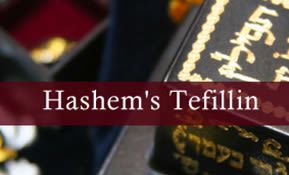
Matot: Atonement for the Soldiers
If the soul fails to retain its purity, it will lack defense against defiling images. Improper sights will have a negative impact on one's emotional faculties…

Translated by Rabbi Chanan Morrison
Parshat Matot
God commanded Moses to attack Midian in revenge for their devastating scheme against the Israelites. The Midianites had used their daughters to lure the Israelite men into worshipping the licentious idolatry of Peor, resulting in Divine anger and a terrible plague.
The war against Midian was a remarkable success — not a single soldier fell. After the battle, the generals and captains approached Moses:
"We wish to bring an offering to God. Every man who found a gold article — an anklet, bracelet, ring, earring, body ornament — to atone for our souls before God." (Num. 31:50)
The officers had followed God's command, waging war against Midian. Why did they feel a need for atonement?
The Sin of the Soldiers
The Sages explained that while the soldiers committed no actual transgressions, they were not free of  improper thoughts. Rabbi Ishmael expressed this idea with an intriguing phrase, saying that "their eyes feasted on the immodest sights" (Shabbat 64a-b).
improper thoughts. Rabbi Ishmael expressed this idea with an intriguing phrase, saying that "their eyes feasted on the immodest sights" (Shabbat 64a-b).
When the soul's inner sense of holiness is healthy and robust, it will not absorb decadent and degrading sights. Such visual stimuli are inconsistent with the overall makeup of the soul and will be promptly rejected.
If, on the other hand, the soul has failed to retain its pristine purity, then it will lack an orderly defense against defiling images. Improper sights will have a negative impact on one's emotional and imaginative faculties, and will generate turmoil within the soul.
Rabbi Ishmael described this phenomenon as a 'feast' of the eyes. To feast or derive nourishment indicates that there exists a natural connection between the food and the living organism eating that food. The soldiers were not immune to the sights of Midian. The images of the Midianite women and their flashy ornaments found a place in their souls, and "their eyes feasted on the immodest sights."
True, the soldiers did not act upon these stimuli; but the very fact that they were drawn to them indicated that they were in need of atonement and spiritual cleansing.
Superficial Attraction
The gold ornaments were an apt metaphor for the corrupting deception that confronted the soldiers in Midian. The Sages wrote that the body ornaments were formed into lewd shapes. The golden pieces of jewelry lured the eye with their dazzling exterior of glittering beauty. Their influence was a function of the magnetism of their superficial attraction. On the inside, however, their true essence remained, crude and repulsive.
(adapted from Ein Eyah vol. IV, pp. 114-116)
* * *
Rabbi Chanan Morrison of Mitzpeh Yericho runs http://ravkookTorah.org, a website dedicated to presenting the Torah commentary of Rabbi Avraham Yitzchak HaCohen Kook, first Chief Rabbi of Eretz Yisrael, to the English-speaking community. He is also the author of Gold from the Land of Israel (Urim Publications, 2006).







Tell us what you think!
Thank you for your comment!
It will be published after approval by the Editor.